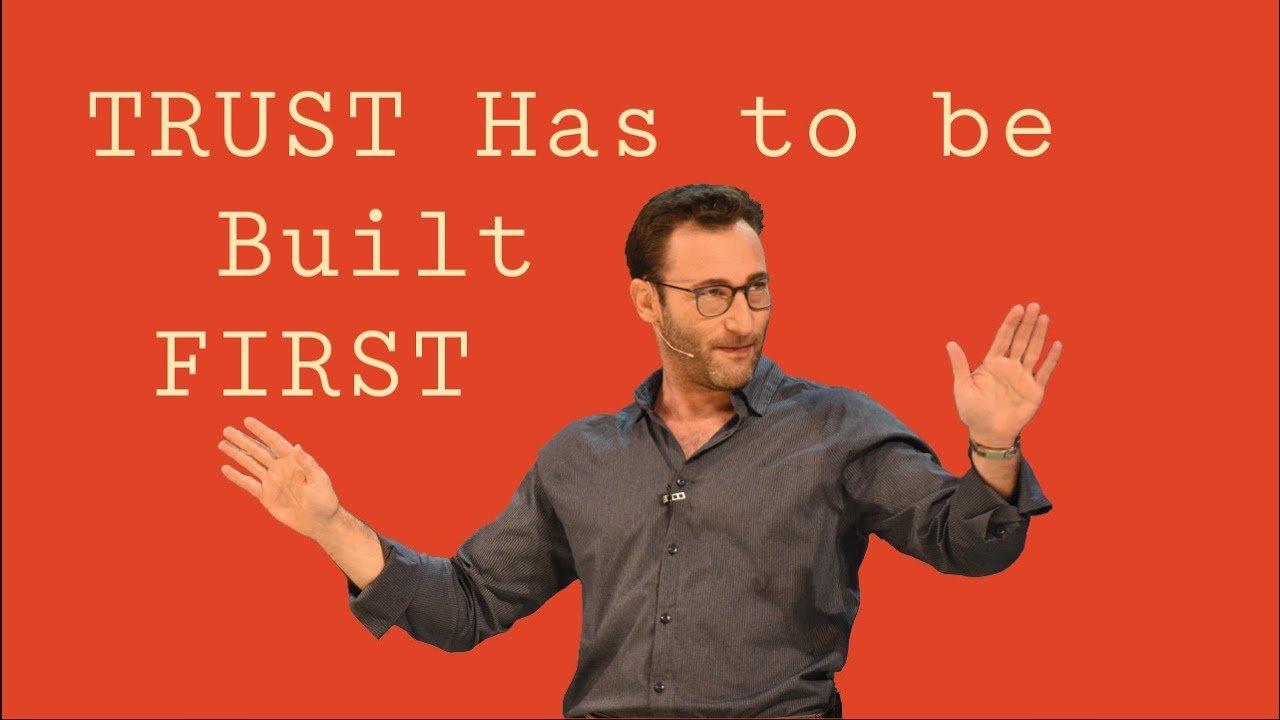In crisis, good leaders have the ability to step in and maintain control – but the TRUST has to be built first. + + + Simon is an …
source
Building Trusting Teams


In crisis, good leaders have the ability to step in and maintain control – but the TRUST has to be built first. + + + Simon is an …
source
In DevOps people believe "add these tools and you are DevOps" or "Higher DevOps Engineers, and you will be DevOps" – btw what's a DevOps Engineer? I dont like the term… Fact is that DevOps requires strong leadership trust. Leaders are not outside of the team, they are the conduit that keeps the team together and supports all their non-tech needs. Thank you Simon Sinek for all your so important work <3
In the Lord Jesus' Name Amen ✝️
keep shinning
Definitely who trust me first😊
"You take responsibility for your action at the time of your action, not after you get caught." – can we send this to all the emails in congress?
When my supervisor place his trusts on me, I tend to outperform and go above and beyond.
This piece of information would really help everyone, cause trust is vital.
Thanks Simon.
Without a rock solid foundation of trust supporting yourself and those you love most dearly, anything built will crack and decay due to fear and mistrust of intention.
If only government had the trust the Marines do
Thats just common sense.. Let me teach you guys another thing.. To make a sandwich, you need something for the middle first.. You can't see, but I have a headset on, so what I am writing MUST be true.. so pay me for it.
Powerful… I love this!
High trust is critical and crucial for everything.
“Trust is equal parts character and competence… You can look at any leadership failure, and it's always a failure of one or the other.”
― Stephen M.R. Covey, The Speed of Trust: The One Thing that Changes Everything
We do not want others to control us or micromanage us. Everything has to be win-win and built on trust.
Thera are certain things money cannot buy and that's 'TRUST'.
If there would be NO TRUST, then it's ONLY the hegemony of Science and Technology to 'command and control others'.
Thank you Simon for your insight! I'm omw to building trust with my team after 7 months of being lead vs team during work where the team is neglecting and disobeying the leads instructions like children even simple ones. Just after 3 weeks of being with the team to building trust by chit chatting with them everyday, concerning about them, eating with them, working with them sitting down together, now I feel the team is more "responsive" and following my instructions given to them.
Gonna keep this bonding up to building greater heights! Thanks again Simon!
Interesting, the real learning point from the anecdote seems to have been missed. “We had another soldier who fell asleep, he admitted it and we punished him … “ that was the failure of leadership right there. When the officer punished someone who made a mistake & owned up, he broke the chain of trust. If, in the services or in business, you create a blame culture, then the trust is gone forever. You can’t have both. The 2nd soldier who fell asleep & denied it, was only behaving in a manner that was consistent with the culture the commander had created.
❤Simon
2:58 "…and they will follow those orders blindly"
Besides strong teams who on noble missions, I wonder how many atrocities has been the result of this thinking
Subject : No incentive for team work to students in education system
We need admission or college exam to be given in teams so teamwork has value in students mind. otherwise they don't have incentive to work in team.
We need to give incentive to students to work in team. because in early age if they don't learn team work and they don't have incentive to do team work , then you will have depressed and selfish future generation.
Youth overestimate their talent and underestimate the importance of team work and trust building, and trust did not build in short time. So practice of trust building is needed for a better future of young generation.
Really amazing
Thanks sir
# 🤝 # 👁 =❤
C’EST LES RÉSEAUX SOCIAUX QUE J’ÉPOUSE OU C’EST AVEC TOI QUE JE ME MARI ?
Trust yourself first. This means believing that if you own up to your mistakes, people will trust you
Fantastic.. Trust is the pillar of creating great relationship! Thanks again Simon!
Taken from Leaders eat last by Mr Sinek 😄
I have learned so much about managing through your books and your talks! It has changed me as a person to be a better leader.
We see this in software service incident response too. Most incidents don’t need highly structured command and control, they need collaboration and coordination support. But when diagnosis is really hard and extends over a long period of time, when plausible hypotheses to investigate are few and far between, then a much more structured command and control approach becomes valuable. Specifying specific people to do specific tasks with specific reporting/synchronisation schedules etc.
It’s important we recognise these distinctions so we don’t force responses to diverse situations into a single, often inappropriate, structure.
Having the ability to adapt when a situation turns out to be different from the norm does require capacity – and as Simon described, trust is one of those capacities that needs to be there (before is it needed) to enable that effective adaptation.